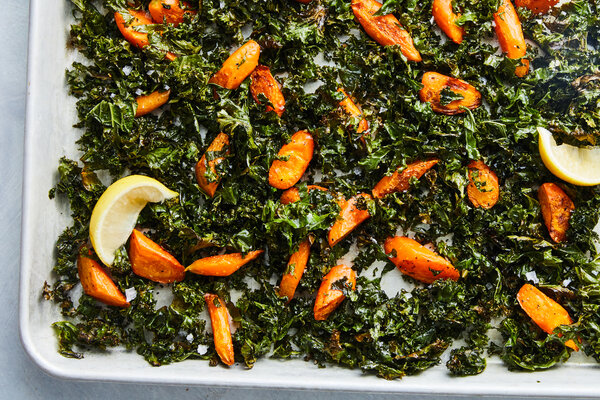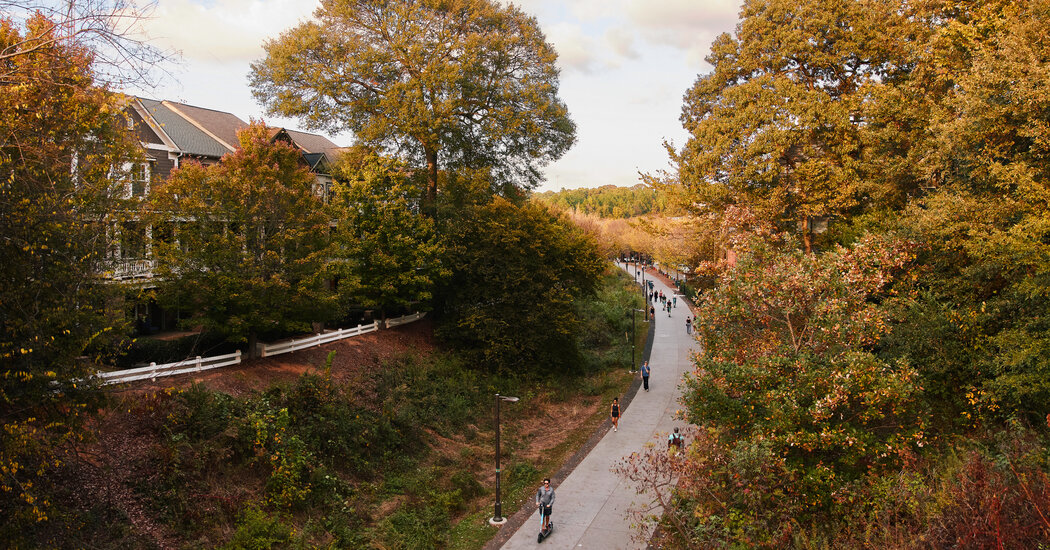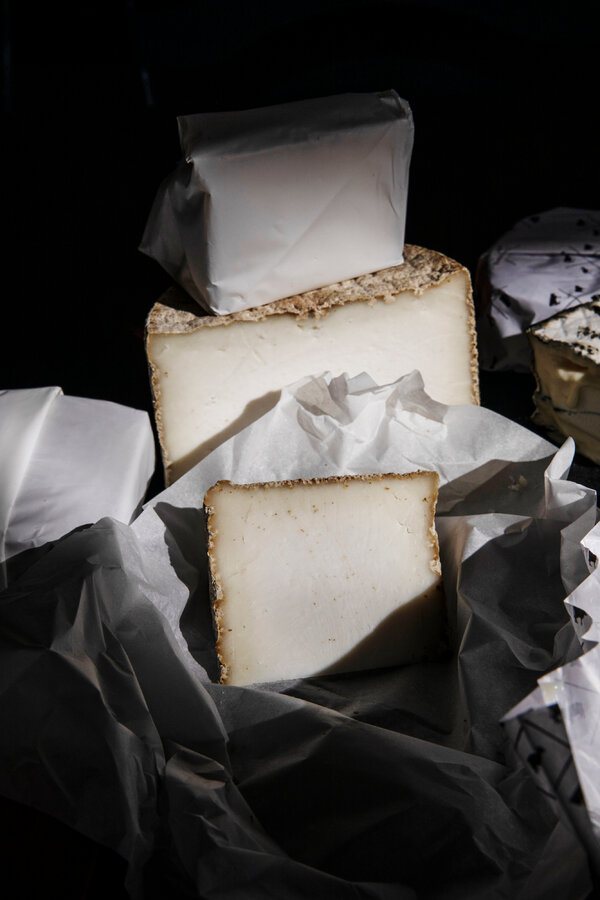My wife, Meredith, and I were having dinner at a place we’d been wanting to try since it opened. The Brooklyn restaurant, self-described as a “Jew–ish” bistro, was as cozy and familiar as I’d hoped. The delicacies — latkes topped with slices of smoked sable, a gin martini washed in pickle brine — appealed to me as an epicure and a descendant of shtetl stock. But on that Thursday night something was off; not with the food, but with me.
Six days earlier, I’d undergone a biopsy of my right breast, after two irregular mammograms — one routine, one follow-up — revealed what appeared to be calcium deposits.
My wife assured me that biopsies, like follow-up mammograms, become more frequent as we get older. And, she said, they might turn up false positives — especially when your breasts are as dense as memory foam, as mine are. Other friends have shared such experiences. I often joked that getting our breasts prodded, needled and squashed in the vise grip of the mammography plates was a rite of passage at our age. But the observation feels different when delivered as a punchline.
I was doing my best to appear fully engaged in our date, but Meredith — with whom I’ve been married for 13 years and partnered for 22 — could see I was agonizing over my impending test results. So I confessed: I could feel bad news coming in my gut, which, personal history has dictated, is rarely wrong.
Sharing my anxiety was enough to alleviate it for the time being, especially since there was nothing to be done but to savor each delectable dish set before us. By the time we strolled home, I was so sated by our meal that I’d managed to put the biopsy out of my mind.
At 3 a.m., however, I was jolted awake by extreme nausea. I crawled to the bathroom, seeking the cold comfort of the tiled floor. The next thing I knew, I was bidding adieu to every bite I’d relished just hours earlier. As my head hung over the toilet bowl, I worked through a mental checklist of potential causes: I hadn’t finished my martini, so it wasn’t alcohol. Meredith and I had split every dish, and she was sound asleep, so it wasn’t food poisoning.
Then, as quickly as I’d been overcome by queasiness, I was settled enough to go back to bed. By morning, I’d almost forgotten my middle-of-the-night ordeal — until my gynecologist called.
I’d chosen her as my doctor almost 25 years ago, in part, because I’d always expected to be in this situation. My paternal grandmother and my mother’s two sisters had breast cancer — one has the BRCA gene, the other died before such tests were available. I, like my mother, tested negative.
I also have a complicated relationship with my breasts, with my body in general, and initially attributed the unease to my being a queer person who didn’t relate to socially ascribed gender roles. In my 20s, I cloaked myself in big baggy clothes. By my early 30s, I stopped worrying about binaries and allowed myself to feel more connected to my body and comfortable with the way my breasts looked.
Even though I was more at ease with their appearance, I was overwhelmed by the fear that I’d eventually lose one or both of them. The first woman with whom I’d ever fallen in love was having precancerous lesions removed from her breasts when we were in college; by the time she was 31, she was diagnosed with Stage IV breast cancer. Six years later, she was dead from the disease.
She wasn’t the only friend who had breast cancer — far from it — but she was my age, and I bore witness to her fight to live.
So it was imperative for me to find the right doctor. But the gynecologist’s office, for lesbians in the 1990s, was not a welcoming space to discuss concerns, or even to speak openly about gender or sexuality. One of the first questions of any visit — “Are you sexually active?” — is practical yet fraught with presumption, and answering “yes” often triggers questions about birth control.
I’d mutter that my birth control practice was to exclusively have sex with women — a little humor to lighten the mood. But, no matter how I brought up my sexuality, an audible silence would fill the room. The gynecologist would grip her clipboard and jot down notes as I averted my eyes, awkwardly perched on the edge of the examination table in a revealing hospital gown, flanked by two metal stirrups.
On one occasion, a doctor said derisively, “So you won’t be having children?” I decided these interactions were more humiliating than helpful and stopped going in for my annual visits.
But when my aunt died of breast cancer in the summer of 1999, I knew I had to change course. I hadn’t had a checkup in three years, so I set on a mission to find a gynecologist who was tolerable; not doing so was too dangerous.
I asked my queer friends about their gynecologists, but none came recommended at the time — until I asked my friend Laura, a lesbian who was seven years older than me. She had recently been diagnosed with breast cancer and was singing the praises of the doctor who’d found the lump.
I asked Laura if a gynecologist’s office could ever feel comfortable for us. She insisted that it could. She wrote down a name and number: Dr. Buxbaum, or Audrey (a doctor who was approachable enough to forgo formalities).
Though Audrey was straight, she didn’t make assumptions, Laura told me. Audrey asked and answered questions without judgment, and was deeply knowledgeable, attentive and compassionate.
“If you ever have to get bad news,” Laura said, “Audrey is the person you want to hear it from.”
Several years later, Laura succumbed to cancer. I was devastated, but she left me an indispensable gift: the doctor I’d need in case of an emergency.
And it was her name that appeared on my phone when that emergency came.
“How are you?” Audrey asked.
“I think you’re about to tell me,” I said, realizing why I’d been vomiting hours earlier.
Her voice eased me into the news: My biopsy revealed I had breast cancer — but it was caught very early.
I closed my eyes and inhaled. This is going to be fine, I told myself. It’ll be fine.
“Do I have to deal with this right this minute?” I asked. “I have so much shit on my plate in the next few weeks.”
This is me in crisis mode, asking for more time, but Audrey was not surprised by my knee-jerk response. I heard myself rattling off weeks’ worth of work deadlines. But she wasn’t rushing me off the call. She’d come in early that morning, she told me, so we’d have the time to talk.
“I always sort of expected to have this conversation with you one day,” I said. “Like, if I had to get this news, I’d want you to be the one to tell me.”
“I was told you were good at giving bad news,” I added. “It turns out it’s true.”
Audrey went silent. It was a heavy thing to say, but I knew I’d regret not sharing it. Going in for my annual checkup was something I’d avoided until I became her patient. What would have happened to me if I hadn’t found her?
Anticipating a cancer diagnosis does little to defuse the dread of what lies ahead. But thanks to my friend Laura’s recommendation, I found a doctor who had created a welcoming space for queer patients, and that may have saved my life.
Kera Bolonik is the editor in chief of DAME Magazine. Her nonfiction book, “Gullible,” is forthcoming from Dey Street/HarperCollins.







